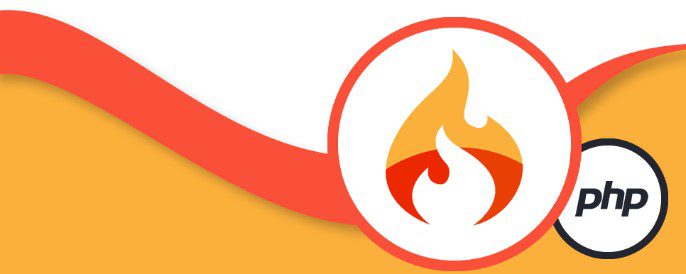- Home
- Website Development & Designing
- Exploring PHP Frameworks: Codeigniter, Laravel, and...

In the dynamic landscape of web development, PHP stands out as a versatile programming language offering flexibility in structure and coding patterns. Among the myriad of PHP frameworks, Codeigniter, Laravel, and CakePHP are prominent choices. This blog aims to dissect the strengths and differences of these frameworks, settling the debate on their respective merits.

Understanding Codeigniter
Codeigniter, the oldest and widely adopted PHP framework, prioritizes rapid web development. Operating on an MVC framework, it boasts simplicity with routing libraries, caching capabilities, and features like session management, making it an attractive choice for developers.
Laravel has emerged as a leading PHP web development framework, known for its comprehensive set of features that streamline the development process. With an elegant syntax and a focus on developer-friendly practices, Laravel has become a go-to choice for building robust and scalable web applications.
One of Laravel’s standout features is its expressive and readable syntax. The framework emphasizes the importance of writing code that is not only functional but also a joy to work with. Laravel’s syntax allows developers to express complex functionalities in a clear and concise manner, promoting code that is both maintainable and efficient.
Laravel’s comprehensive ORM, Eloquent, provides an intuitive and eloquent way to interact with databases. Models are defined in a straightforward manner, and relationships between models are established effortlessly. Eloquent supports advanced features like eager loading, making it a powerful tool for working with databases while maintaining simplicity.
The framework also includes a robust templating engine called Blade, which combines the best of PHP and plain text. Blade templates are designed to be both powerful and easy to use, offering features like template inheritance and sections for creating modular and maintainable views.
Laravel’s artisan command-line tool simplifies common development tasks, such as database migrations, seeding, and creating controllers. Artisan not only automates these processes but also allows developers to create custom commands, enhancing the overall development experience.
Routing in Laravel is both powerful and flexible. With a concise and expressive syntax, developers can define routes, group them, and even create named routes for easier maintenance. Laravel’s routing system plays a crucial role in building RESTful APIs and web applications with clean and meaningful URLs.
Laravel embraces the concept of middleware, allowing developers to filter HTTP requests entering the application. This feature is powerful for tasks like authentication, logging, and CORS handling, providing a modular and organized way to handle HTTP requests.
Another notable feature of Laravel is its built-in support for task scheduling and background job processing through Laravel Task Scheduler and queues. This allows developers to automate repetitive tasks and improve the performance of their applications by handling time-consuming processes in the background.
Laravel’s ecosystem is further enriched by Laravel Mix, a concise API for managing assets using webpack, making it easy to compile and minify CSS and JavaScript. This integration simplifies front-end development while ensuring a smooth and efficient asset management process.
In conclusion, Laravel PHP stands out as a comprehensive framework that combines an elegant syntax with a rich set of features. From its expressive ORM to powerful routing and command-line tools, Laravel provides a robust foundation for building modern web applications. The framework’s commitment to simplicity, combined with its feature set, makes it a compelling choice for developers aiming to create efficient, maintainable, and feature-rich applications.
CakePHP is a web development framework that stands out for its commitment to simplicity. In a world where complexity often seems to be the norm, CakePHP takes a refreshing approach by placing simplicity at the forefront of its design philosophy.
One of the key principles of CakePHP is convention over configuration. This means that, by following a set of conventions, developers can achieve a lot without having to configure every aspect of their application. This not only reduces the amount of boilerplate code but also makes the codebase more readable and maintainable.
The simplicity of CakePHP is evident in its intuitive and expressive syntax. The framework provides a clean and organized structure, making it easy for developers to understand and work with. This simplicity is not just about writing code; it extends to the overall development process.
CakePHP’s integrated ORM (Object-Relational Mapping) system simplifies database interactions. Models are defined using conventions, and relationships between models are established effortlessly. This abstraction allows developers to focus on building features rather than getting bogged down in complex database queries.
Another aspect of CakePHP’s simplicity is its built-in scaffolding. This feature generates basic CRUD (Create, Read, Update, Delete) functionality for models, reducing the need for repetitive coding. Developers can quickly prototype and build applications by leveraging these scaffolding features.
The framework also embraces the DRY (Don’t Repeat Yourself) principle, encouraging developers to write reusable code. Components and behaviors in CakePHP provide a modular way to encapsulate and reuse functionality across different parts of an application.
CakePHP’s simplicity doesn’t mean sacrificing power. The framework includes a robust set of features for routing, security, caching, and more. However, these features are designed with a focus on simplicity and ease of use.
In the realm of PHP frameworks, the choice between Codeigniter, Laravel, and CakePHP hinges on project requirements, developer preferences, and the desired level of complexity. Despite its simplicity, Codeigniter remains a favored choice for its ease of understanding and rapid development capabilities. Ultimately, the decision rests on aligning framework features with the specific needs of a given web development project.
© 2013 - 2025 Foreignerds. All Rights Reserved